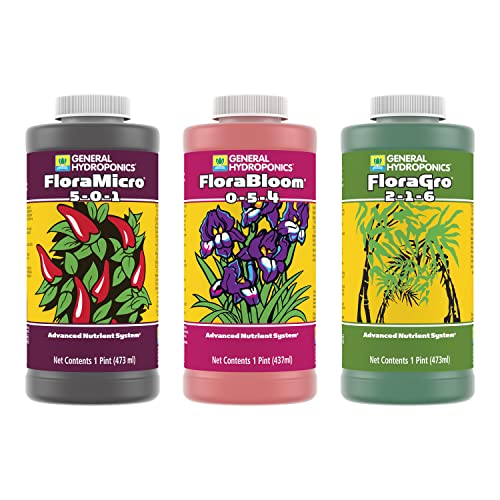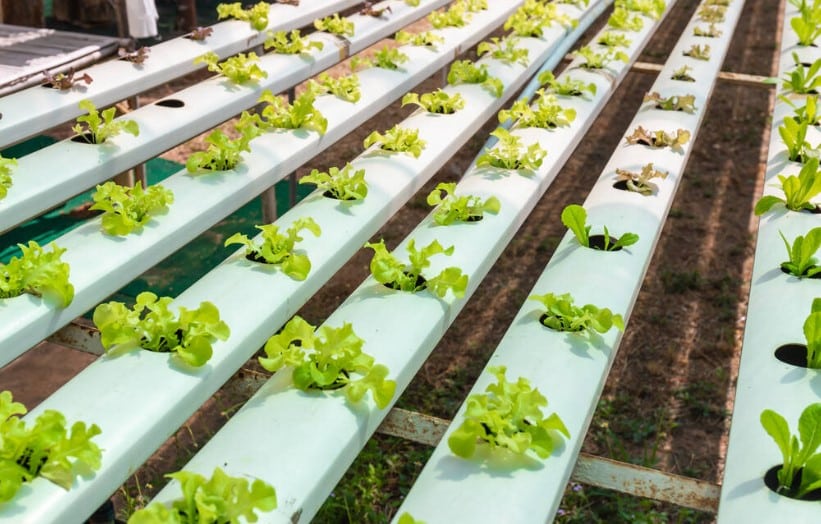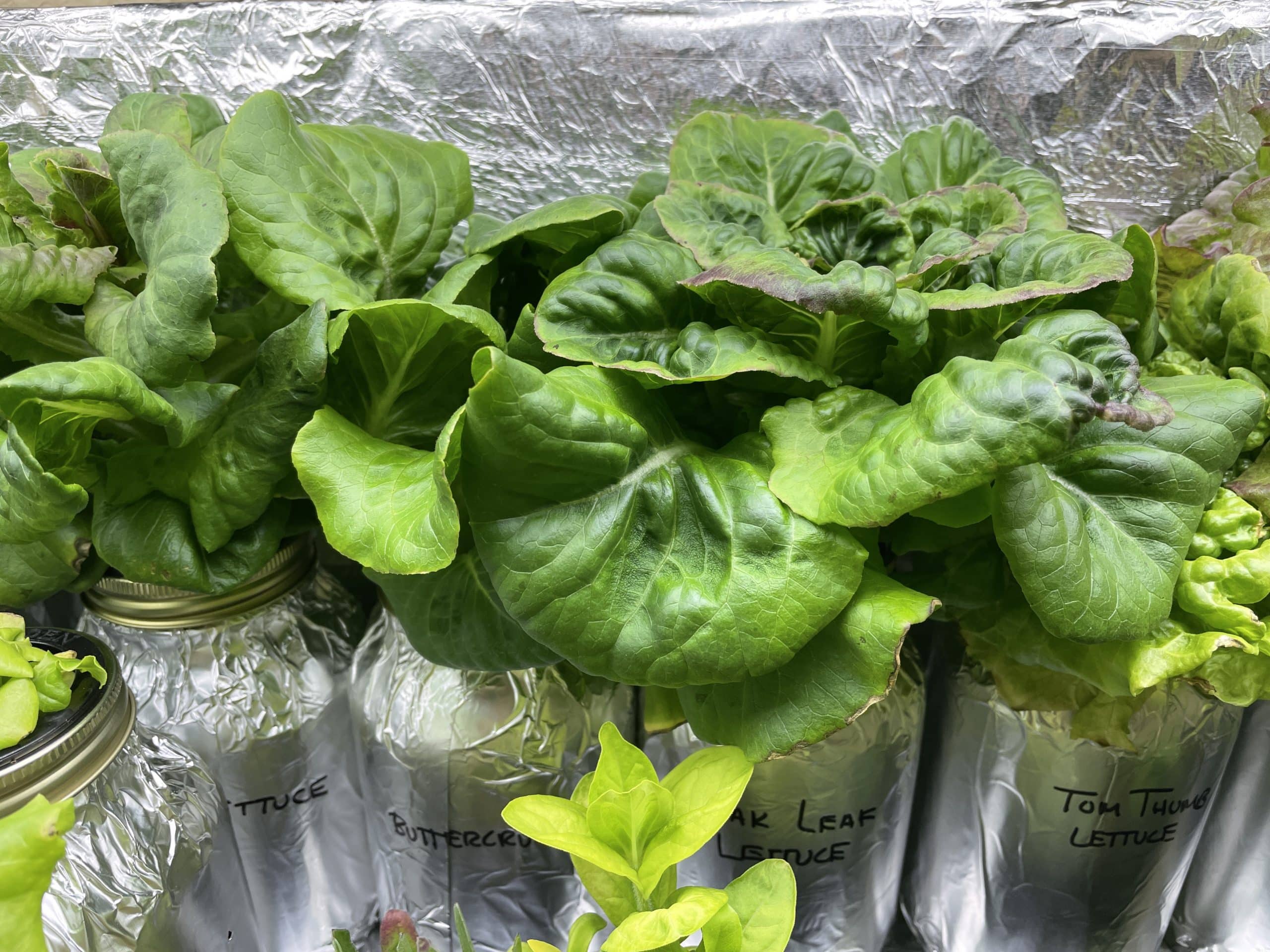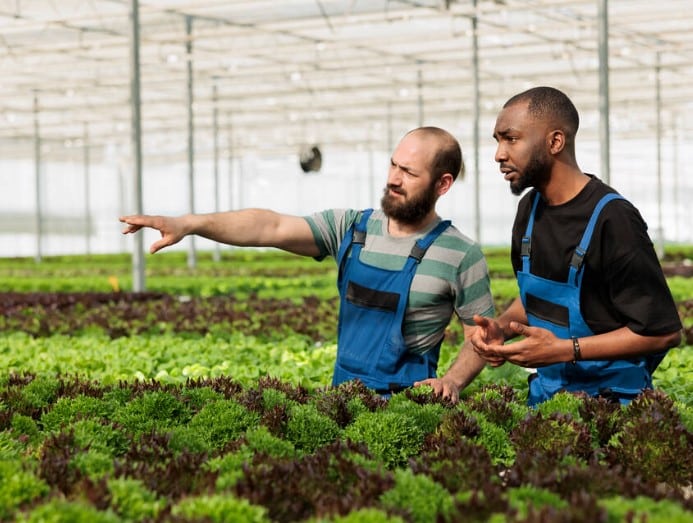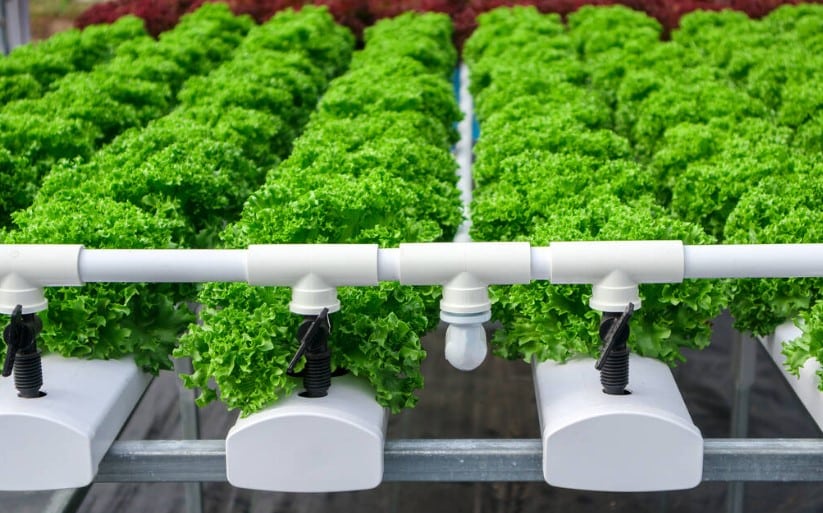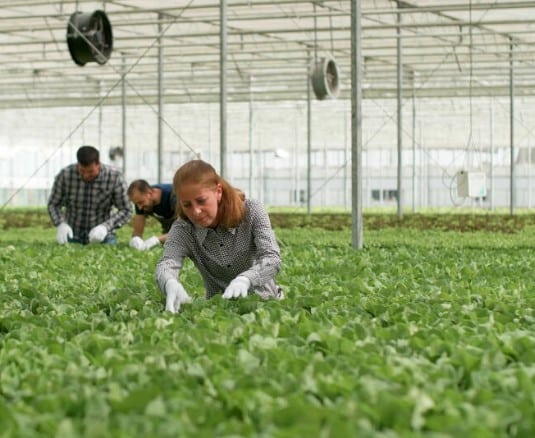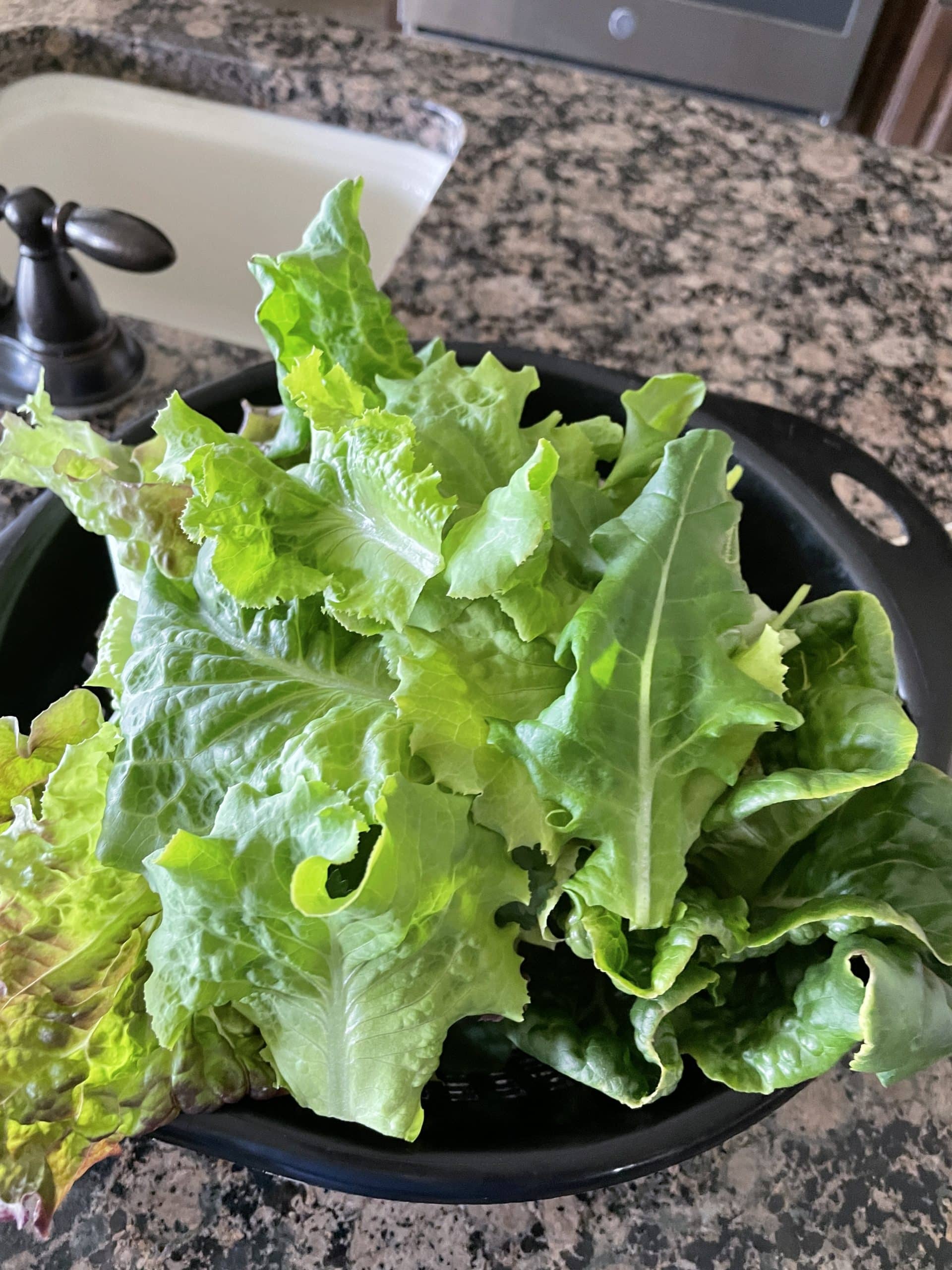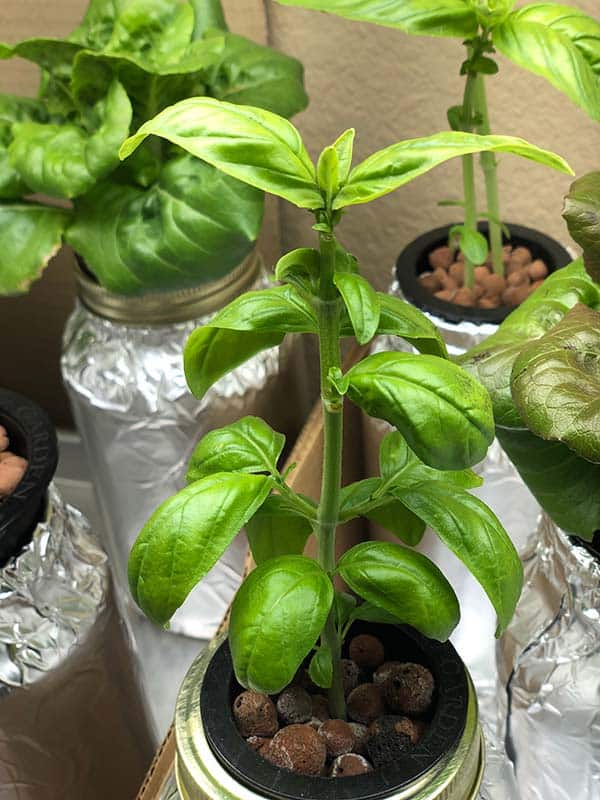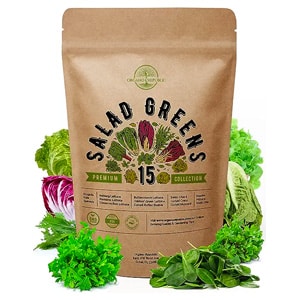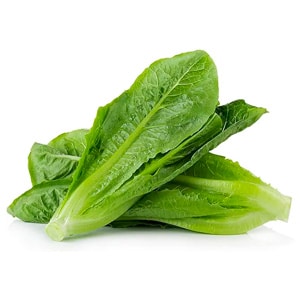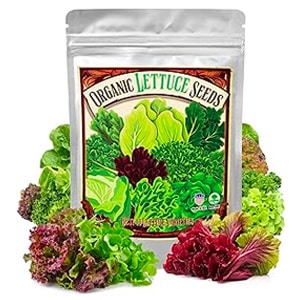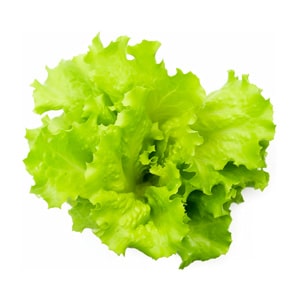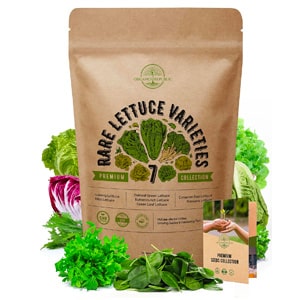What is the Kratky Method of Hydroponics?
The Kratky method of hydroponics is a passive hydroponic technique that is a simple and easy way to grow plants without the need for a lot of equipment. This method is great for growing plants in a small space, and it is also a great way to grow plants for food or medicine. The only downside to this method is that the plants can etiolate if they do not receive enough light.
What Are The benefits of the Kratky Method of Hydroponics?
The main benefit of the Kratky method is that it is a very simple and easy way to grow plants. This method does not require a lot of equipment, which makes it great for growing plants in a small space. Additionally, this method is great for growing plants for food or medicine. The only downside to this method is that the plants can etiolate if they do not receive enough light.
As the plant grows and depletes the water level, a gap of moist air will form and expand between the water surface and the base of the plant.
Who Invented the Kratky Method?
The Kratky method of hydroponics was invented by Bernard Kratky, a professor at the University of Hawaii.
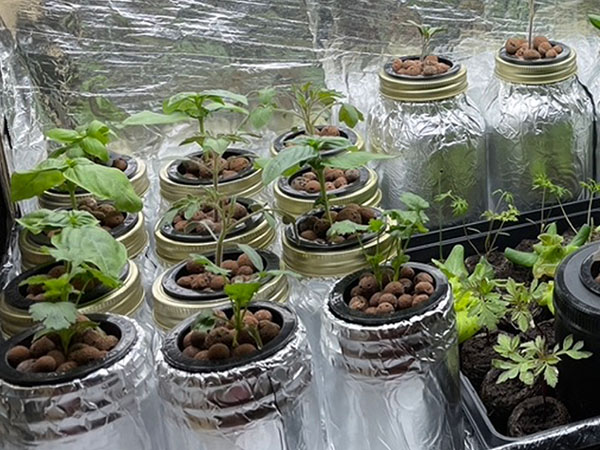
Imagine growing hydroponic lettuce, tomatoes, basil, cilantro, green onions and so much more right in your own home using a simple method called Kratky Hydroponics and the Kratky Method of growing.
Now imagine doing it all through the winter too. That is what indoor Kratky hydroponics can do for you.
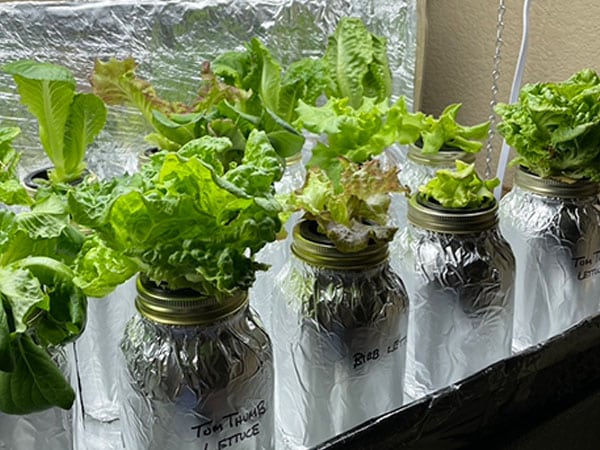
ADVERTISEMENT
As an Amazon Associate I earn from qualifying purchases.
Grow 250+ lbs hydroponically indoors using the Kratky Method of Hydroponics in a very small space!
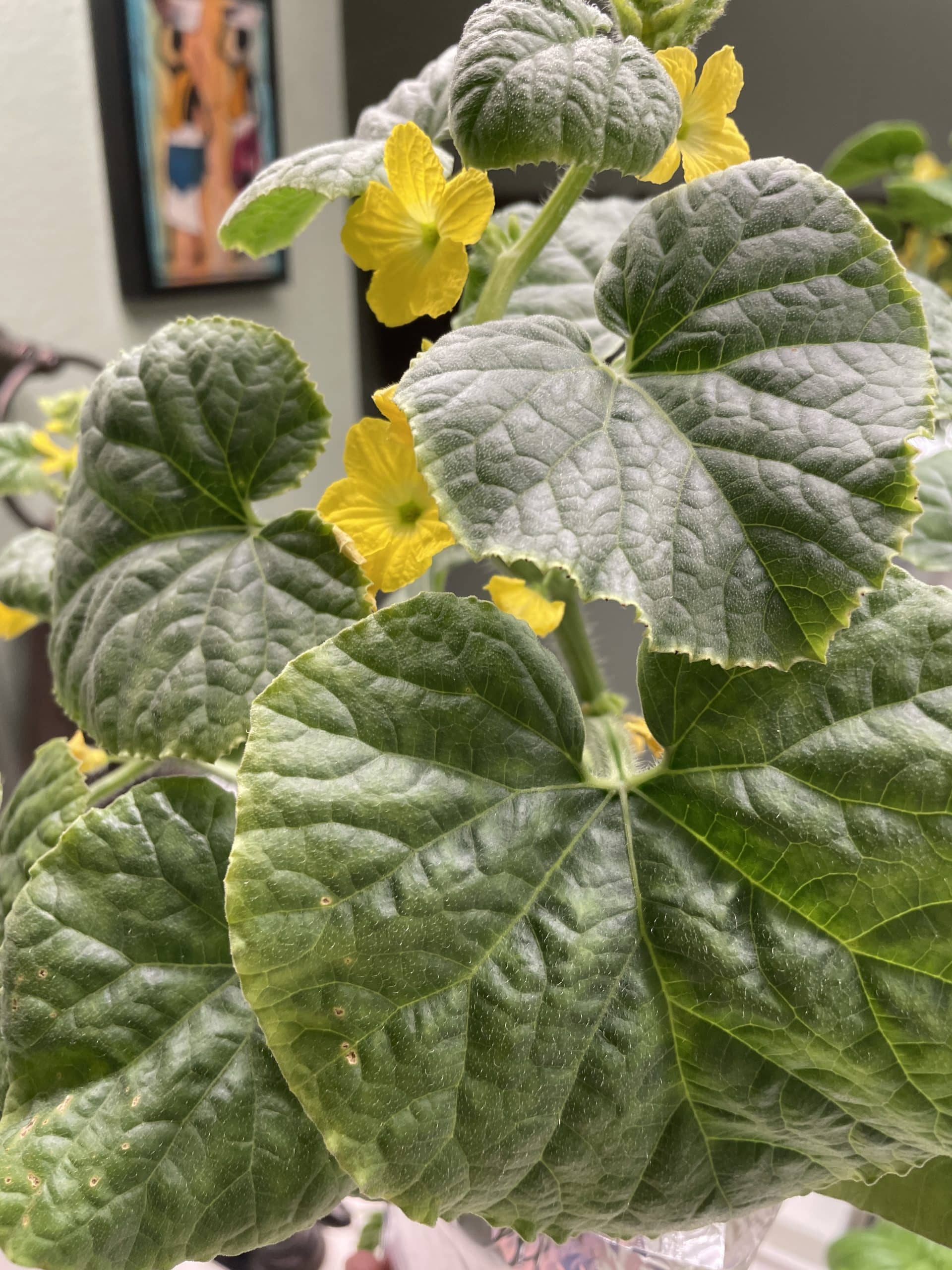
What I Grew with Two Kratky Hydroponic Gardening Shelfs & 2 LED Grow Lights
I use only two shelves on a standard 5 x 2 foot shelf that sits in my office. With only two grow lights, I am able to grow over 250 pounds of lettuce, tomatoes & herbs for my family. Learn all about the Kratky method of hydroponic growing here!
The way we use Kratky is a non-circulating technique. Without the need for soil, the Kratky method allows me to grow plants, fruits and vegetables in simple containers. You can aerate the plants easily with an added pump, but we find the Kratky method needs very little aeration, as the roots are suspended in air above the water.
LEFT: Kratky grown kratky hydroponics yellow squash growing and flowering! It started blooming indoors, so I transplanted it outside.
ADVERTISEMENT
As an Amazon Associate I earn from qualifying purchases.
Learn About the Kratky Method of Hydroponics
Kratky Design
See how I setup a simple Kratky hydroponic method indoors on two 5×2 foot shelfs – easy peasy!
Kratky Maintenance
The Kratky method is easy to setup and maintain. No weeds + infrequent watering.
Cleanup for Kratky
Cleanup is easy. No fuss or mess, just pop your tools and such in the dishwasher and you are done.
Kratky Small Plants
The key to growing in a small space is size. Selecting varieties that stay small is important.
No Mowing or Weeds
All the yard work is eliminated with Kratky Hydroponic systems. No weeding, no mowing.
Kratky Fruits & Veggies
Grow fruits and vegetables in containers. From strawberries to tomatoes and lettuce.
Kratky Flowers
Start your flowers indoors or simply grow indoor varieties with ease. Either way are gorgeous.
Transplant Outdoors
And when the time comes, you can harden off and move your hydroponics outdoors.
My Indoor Kratky Hydroponic Garden
I love to grow things indoors. Taking care of seedlings & watching my food grow right before my eyes. The fresh taste of all these gorgeous varieties can’t be beat anywhere.
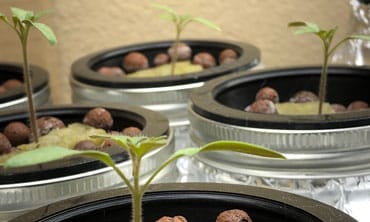
My little seedlings growing in my Kratky Hydroponic system. I grow most of my hydroponics in mason jars in less than 20 square feet in my office.
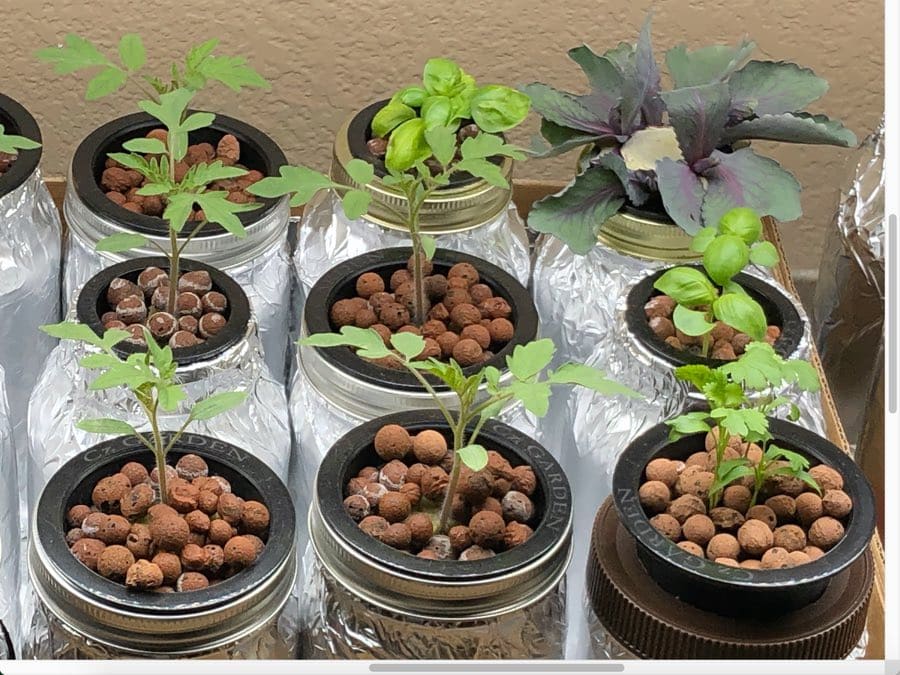
Seedlings under the led grow lights in the Kratky Hydroponic indoor garden in my office.
Learn more about Hydroponic Gardening
Key Facts About Kratky Hydroponics
Passive System: Operates without the need for electricity, pumps, or aerators.
Simplicity in Design: Ideal for beginners due to its straightforward setup and low maintenance.
No Soil Required: Utilizes a water-based solution rich in nutrients, eliminating the need for soil.
No Soil Required: Utilizes a water-based solution rich in nutrients, eliminating the need for soil.
Efficient Water Use: More water-efficient compared to traditional soil gardening.
Suitable for Leafy Greens and Herbs: Particularly effective for growing plants like lettuce, spinach, and various herbs.
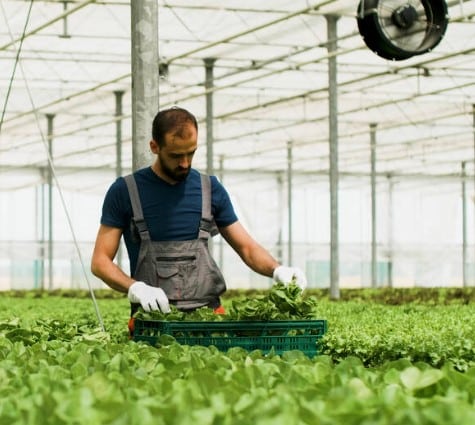
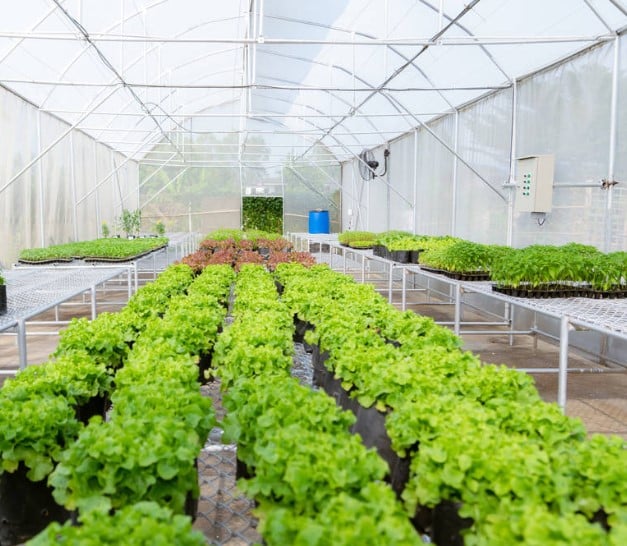

Low Cost: Requires minimal investment in equipment and resources.

Scalability Limitations: Best suited for small-scale gardening rather than large-scale commercial operations.

Nutrient Solution Management: Requires careful preparation and monitoring of the nutrient solution.

Eco-Friendly Option: Reduces the need for chemical fertilizers and pesticides compared to some traditional farming methods.

Indoor and Outdoor Flexibility: Can be set up both indoors with grow lights or outdoors in natural light.

Customizable Setups: Allows for a range of container sizes and types, adaptable to different spaces and needs.

Organic Growing Potential: Compatible with organic nutrients for a more sustainable approach.

Direct Nutrient Absorption: Plants have direct access to nutrients in the water, promoting efficient growth.

Minimal Pest and Weed Problems: Reduced risk of pests and weeds compared to soil-based gardening.

Visual Monitoring of Growth: Enables easy observation of root development and water level.

Space Efficiency: Ideal for urban settings or areas with limited gardening space.

Reduced Labor Intensity: Less labor-intensive than traditional gardening methods.
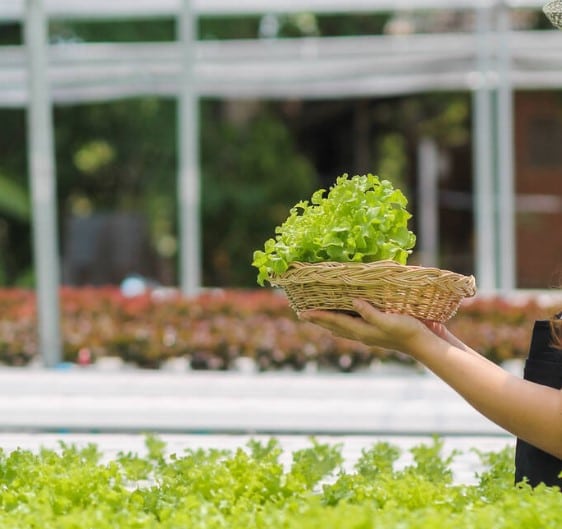
Principles of the Kratky Method

Passive Hydroponics
Plants are suspended with their roots partially submerged in nutrient-rich water.
Nutrient Solutions

Composition
Balanced mix of macro (N-P-K, Magnesium, Calcium) and micronutrients (Iron, Manganese, Boron, etc.).

Preparation
Dissolving water-soluble fertilizers in water to the correct concentration.

pH Levels
Ideal pH is around 5.5 to 6.5 for optimal nutrient uptake.

Conductivity
EC (Electrical Conductivity) or TDS (Total Dissolved Solids) meters are used to ensure appropriate nutrient strength.
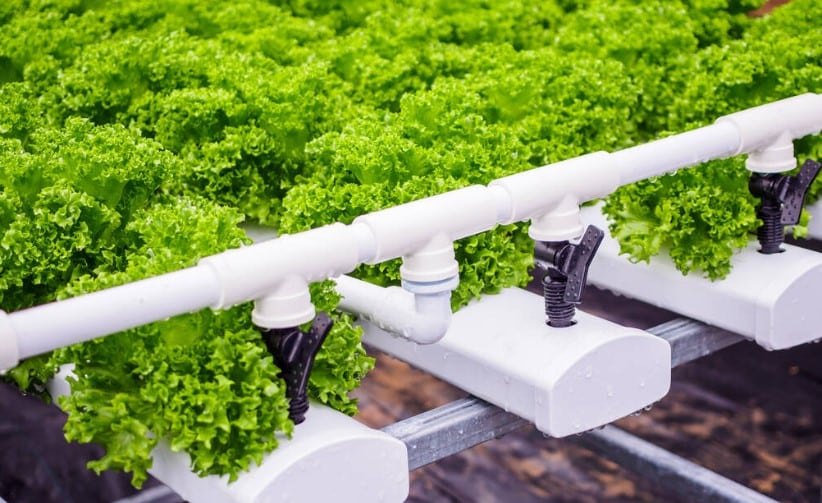
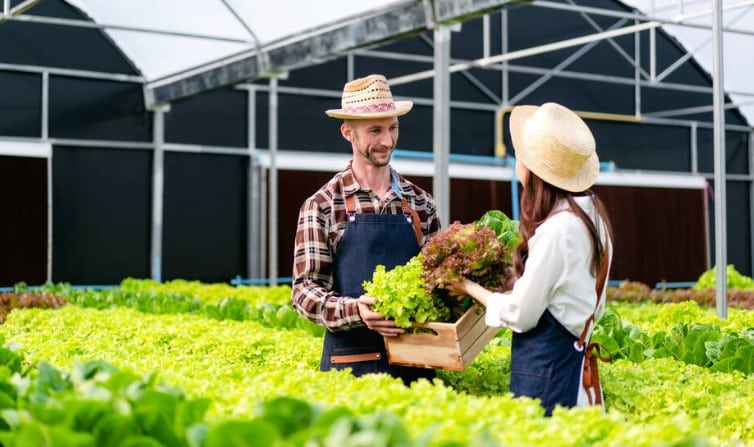
Plant Selection and Management

Ideal Plants
Best for leafy greens like lettuce, spinach, and herbs.

Seed Starting
Seeds can be started in rockwool cubes or other inert growing mediums.

Transplanting
Once roots develop, plants are transferred to the Kratky setup.

Harvesting
Plants are harvested once they reach maturity, typically not replanted in the same solution.
System Setup

Containers
Use non-transparent containers to prevent algae growth.

Spacing
Adequate space between plants is crucial for growth and access to nutrients.

Lighting
Natural light or grow lights if indoors.

Temperature and Environment
Stable temperatures and protection from extreme weather are necessary.
Build Your Dream Hydroponic Indoor Kratky Garden
Would you like to create your own indoor hydroponic system using the Kratky method? Lisa will show you how she setup an entire garden on 2 5×2 shelfs – that’s 20 square feet! Grow lettuce, tomatoes, basil, cilantro, green onions, strawberries, peppers and more using this easy to learn system.
Recommended Glass Containers for The Kratky Method of Hydroponics
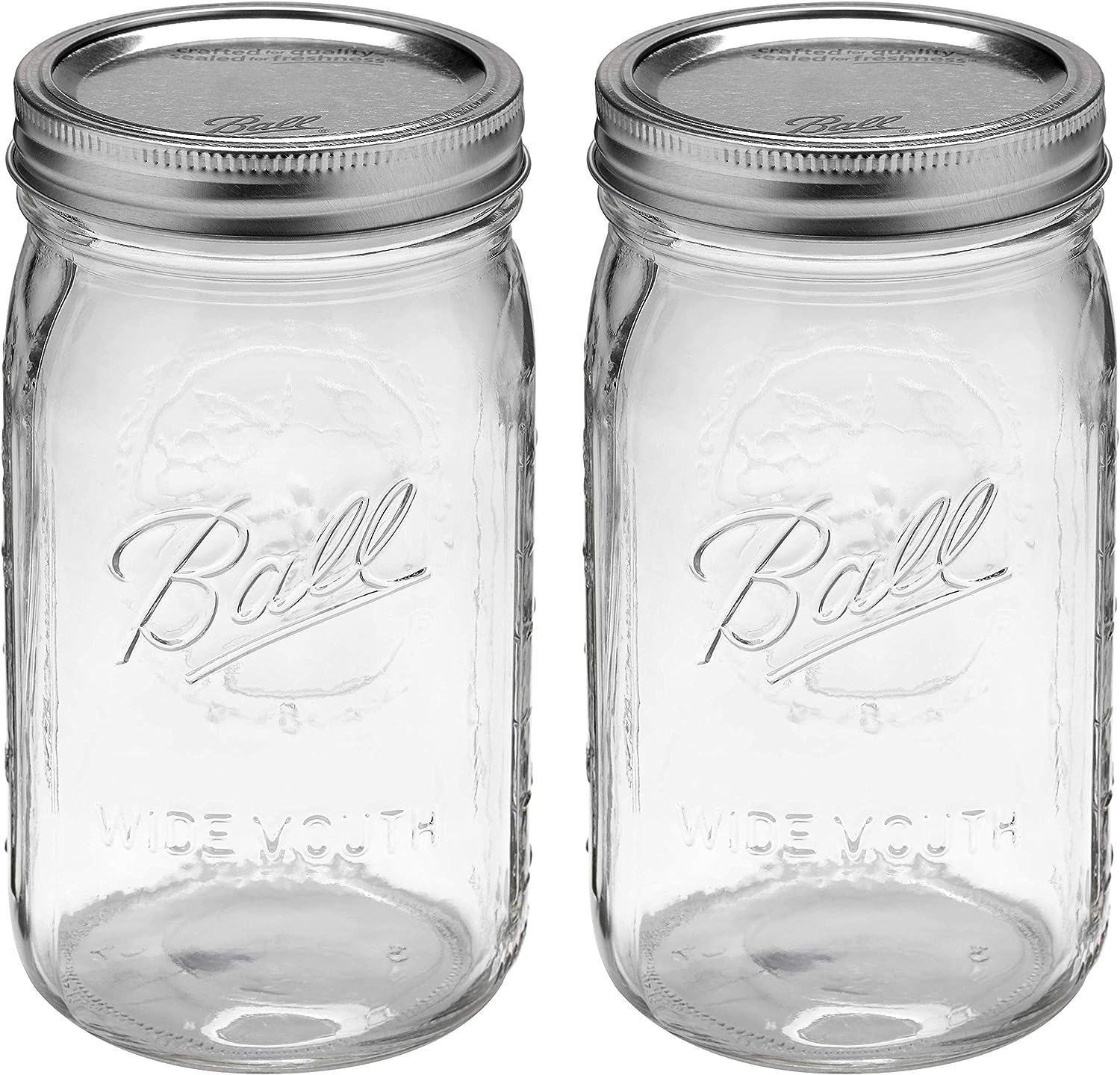
Wide Mouth Quart Size
We love the wide mouth quart size for smaller plants.
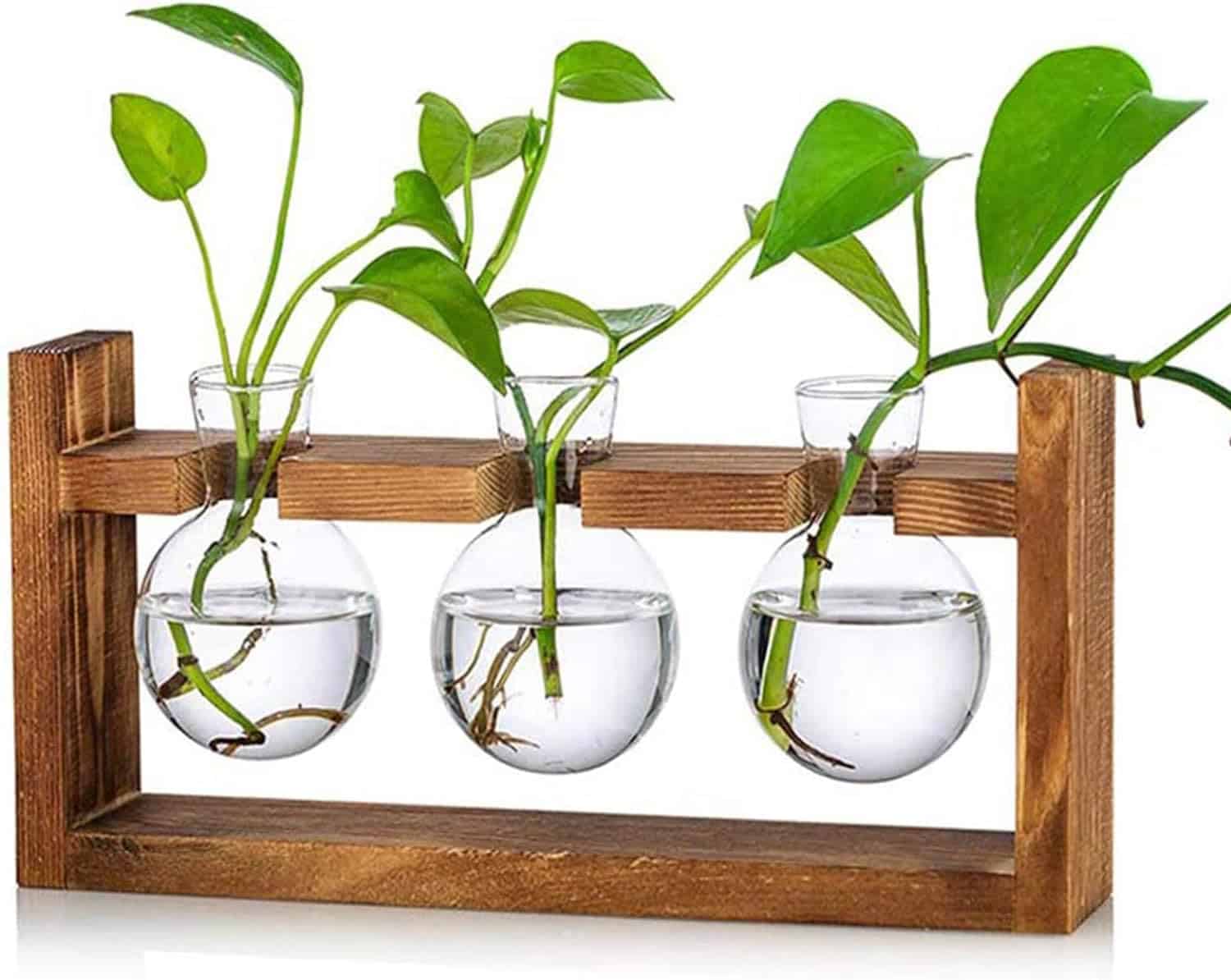
Containers for Herbs & Clones
We love to grow our clones in a pretty display! Works for herbs.
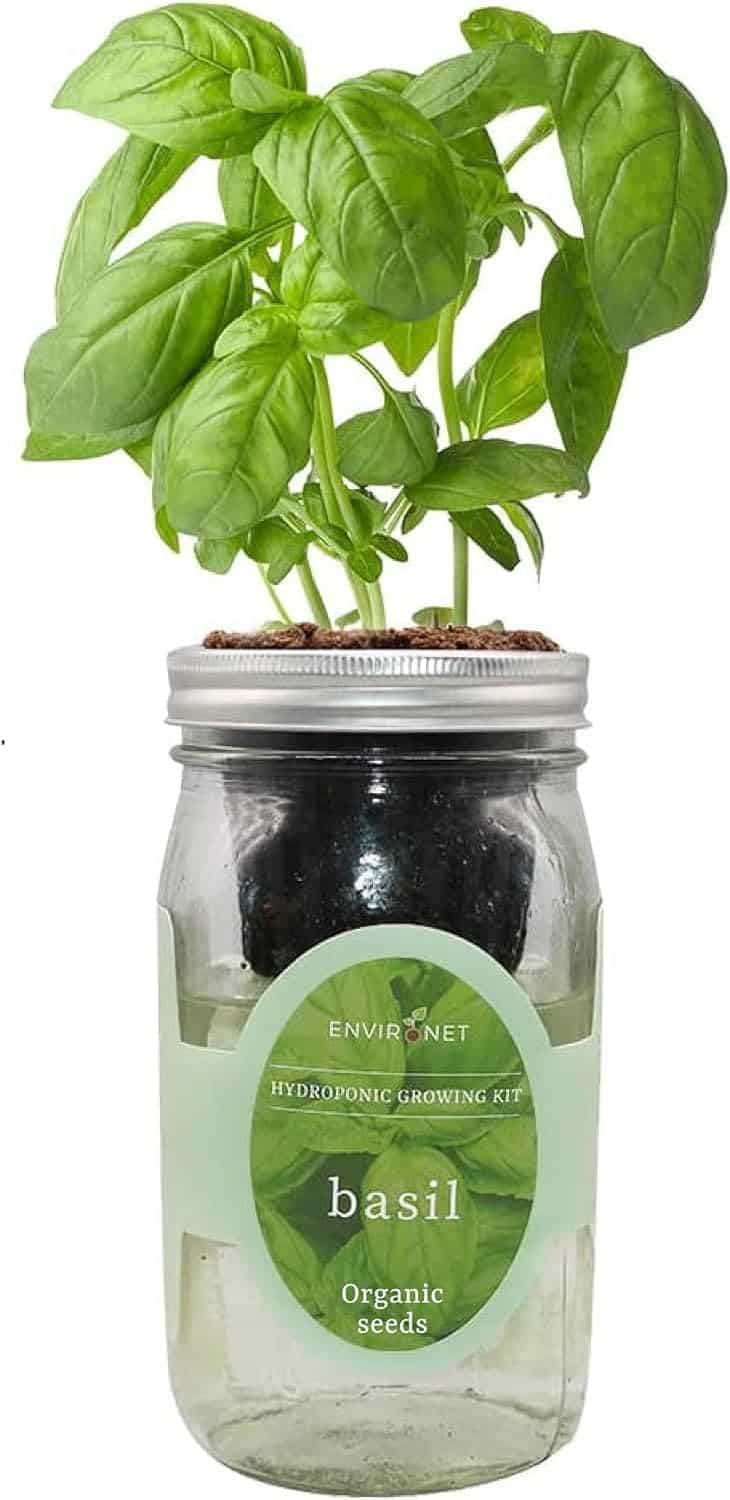
Complete Basil Kit with
This kit has everything you need to grow basil in a kitchen window.
Advantages

Simplicity
Easy to set up and maintain, ideal for beginners.

Energy Efficiency
No electrical components required.

Cost-Effective
Low initial and ongoing costs.
Challenges

Limited Scale
More suitable for small-scale operations.

Nutrient Management
Imbalance or depletion of nutrients can affect plant health.

Monitoring
Regular checking of water level and nutrient concentration is required.
Maintenance and Troubleshooting
Water Level
Keep an eye on the water level and refill if it drops too fast.
Nutrient Replenishment
Top up nutrients if the solution gets depleted.
Pest and Disease Control
Regular inspection for pests and diseases; use organic pest control methods if necessary.
Innovations and Variations
Hybrid Systems
Some gardeners experiment by combining Kratky with other hydroponic systems.
Automated Monitoring
Incorporating sensors and IoT for monitoring water levels and nutrients.
Environmental Impact and Sustainability
Water Usage
More efficient than traditional soil gardening.
Chemical Use
Reduction in pesticides and herbicides.
Organic Options
Organic nutrient solutions are available for a more sustainable approach.
“Wow, I love Lisa’s easy to follow Kratky method instructions!”
Lisa keeps it simple and simply shows us what we need to do with the Kratky method, without things we just don’t need to know. We used her techniques and grew tons of stuff. Indoors!
“Imagine growing lettuce in a small space using Kratky, who would have thought?”
I still pinch myself when I see all of my little plants growing in such a small space. While Lisa did not invent the Kratky method or techniques, the way she explains it is perfect.
“A salad right in the other room, just pick it! I love this Kratky stuff!”
I was drawn to growing fresh lettuce and tomatoes in the hard winter in Minnesota. Now with prices sky high, I sure am glad I am growing my own varieties right using Kratky hydroponics.
Recommended Plastic Containers for Kratky Hydroponics
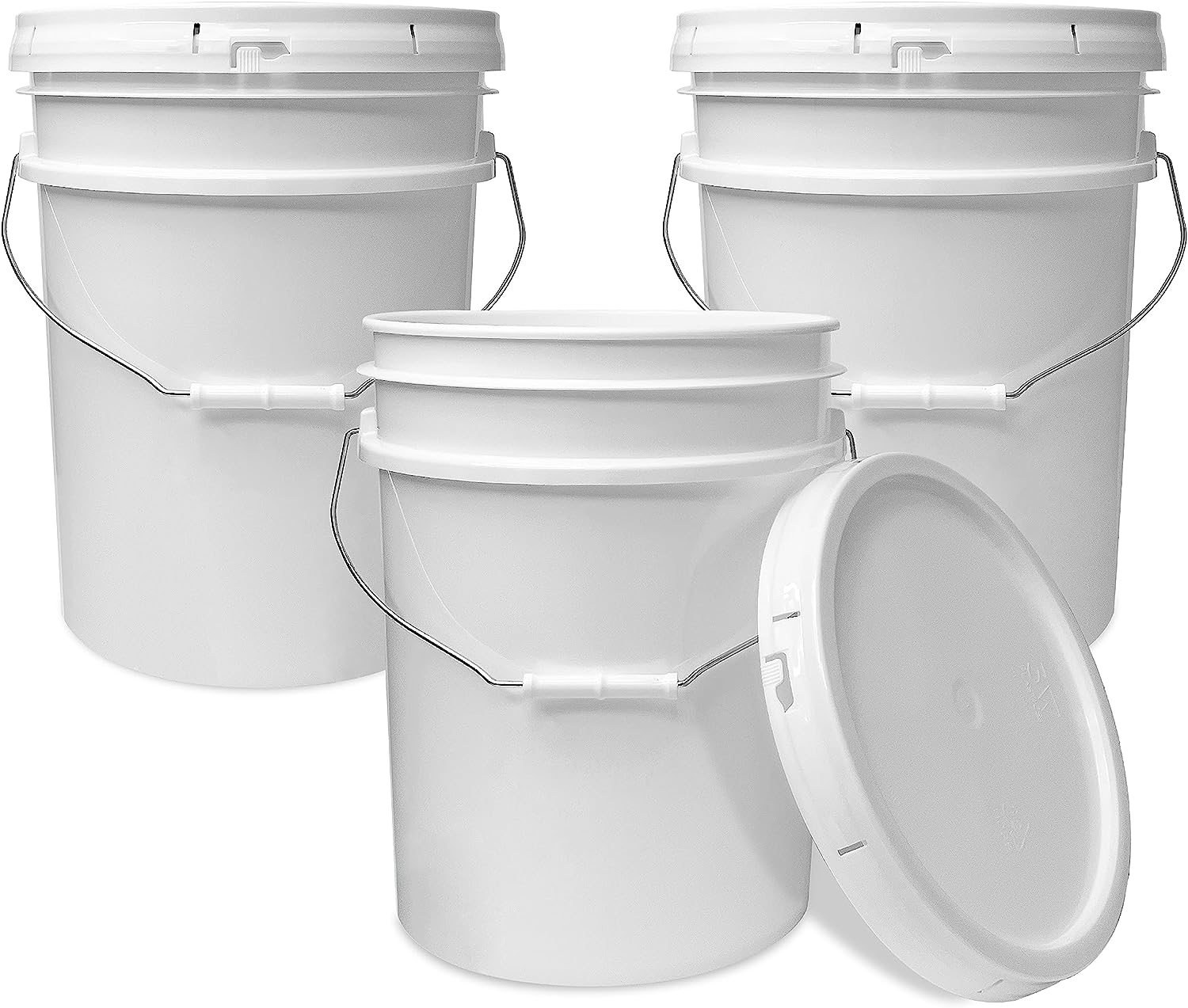
5 Gallon Plastic Buckets
The perfect size for growing Kratky Container Tomatoes and they are FOOD GRADE.
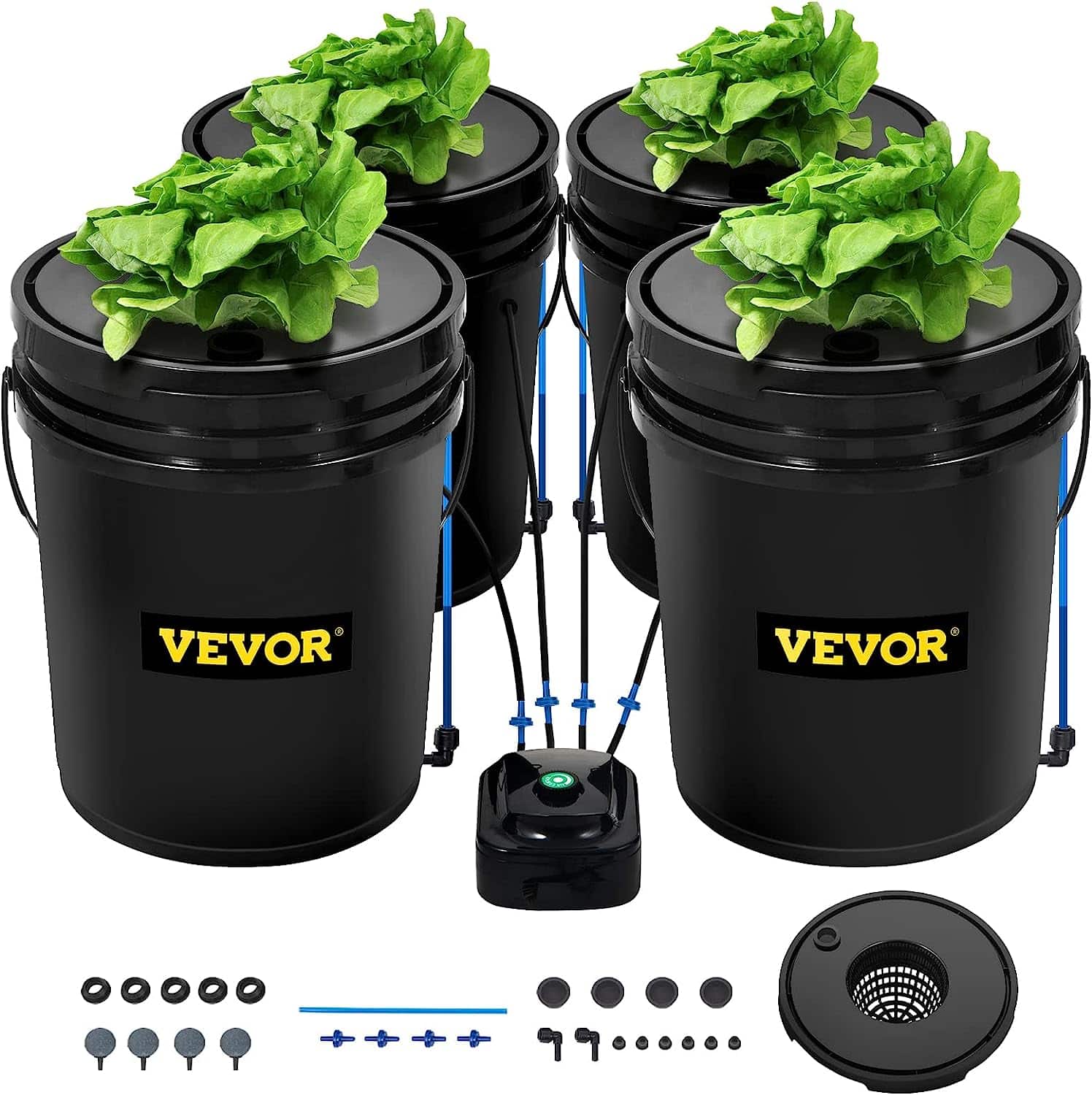
4 Bucket Hydroponic System
No work hydroponic gardening system with 4 containers. Includes aerator and net cups.
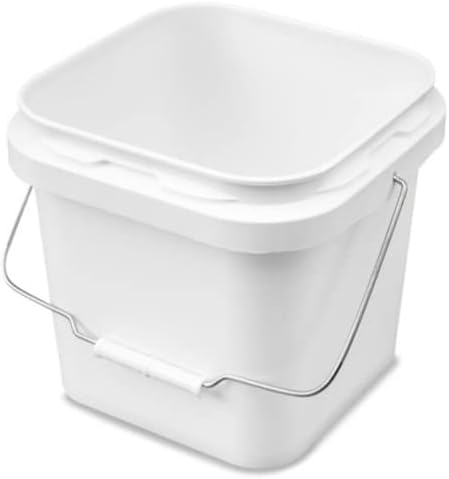
Two Gallon Plastic Containers
These are great for your plants that do not take up. as much space or water.
What Can You Grow With Kratky Hydroponics?
Kratky Lettuce
A Bowl of Lettuce Grown Hydroponically Using the Kratky Method
Kratky Hydroponic Lettuce
One of the best uses for indoor growing without soil using the Kratky method is to grow lettuce. Lettuc by far is the easiest vegetable to start with and grows well in the Kratky mason jar method. I gorw all types and varieties of lettuce.
Growing Lettuce The Kratky Way is Better
Unlike other plants grown hydroponically, lettuce grows fast and can be grown in a small container with little to no attention for it’s entire lifespan, which is often cut to less than 20 days using the Kratky method of hydroponics.
Types of Lettuce that Grow with Kratky
Honestly, Kratky hydroponic growing works well for all types of lettuce. Since you will be growing indoors or outdoors without soil, the temperature is more of a factor than anything. Some varieties prefer colder weather than what may be present under grow lights.
Some of the most popular varieties are:
- Red Leaf Lettuce
- Green Leaf Lettuce
- Bibb Lettuce
- Romaine Lettuce
- Iceberg Lettuce
- Coral Lettuce
- Escarole
- Looseleaf Lettuce
We suggest you just try what you like and see how it grows. Many leafy greens grow well in a Kratky hydroponic garden.
Other Favorite Hydroponic Plants
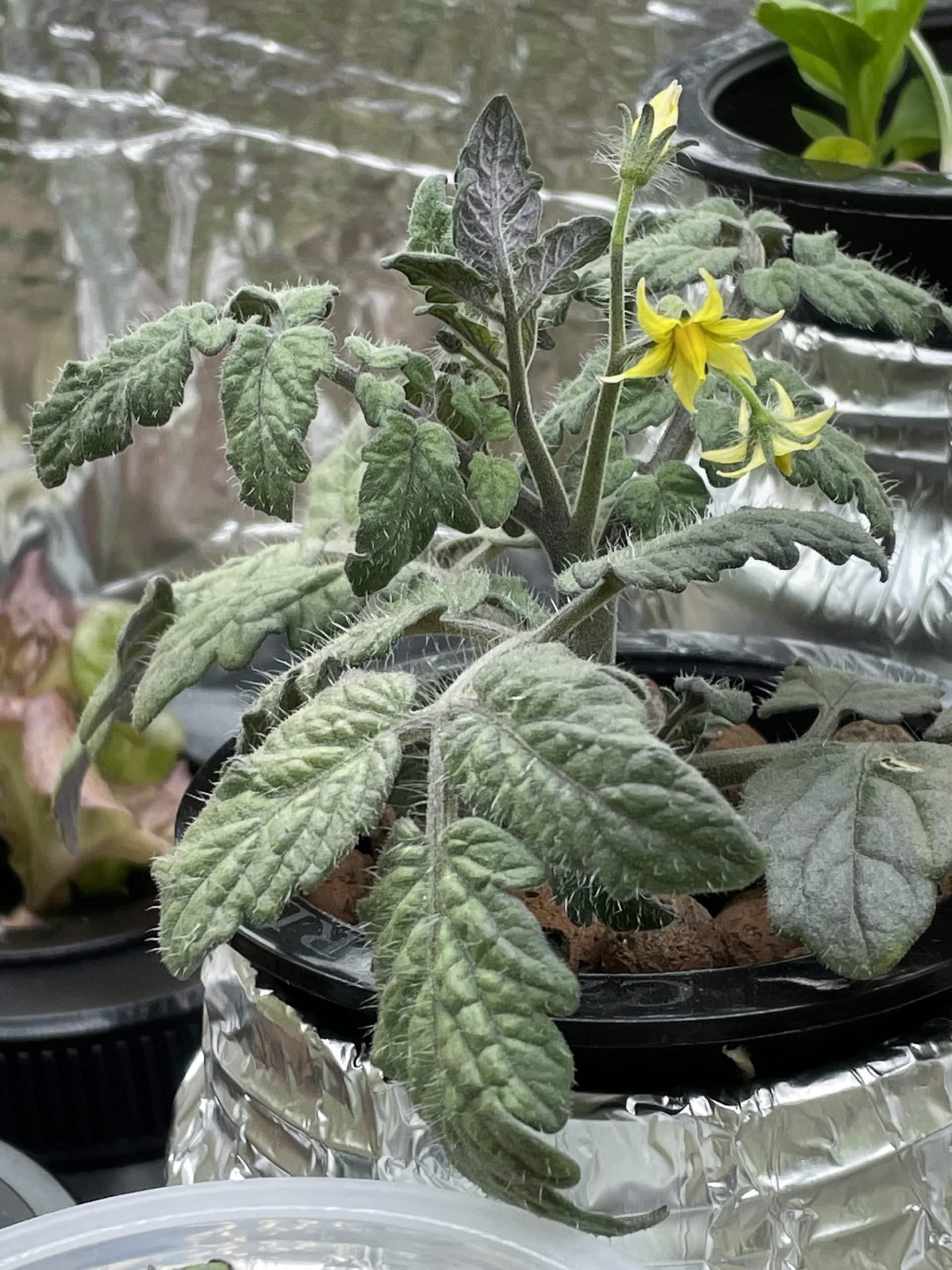
Kratky Hydroponic Tomatoes
Everyone loves a ripe, warm tomato just picked from the garden. But when winter comes, we are forced to buy them from the local grocery store and they simply don’t taste the same. We can grow tomatoes all dang year indoors. There are some great dwarf or micro varieties that are great for indoors or limited space gardens.
Kratky Hydroponic Basil
Growing basil is fun and rewarding. If you are a beginner hydroponic gardener, you must grow basil. Hydroponic systems provide plenty of water, which is great for herbs, especially basil. Combine your basil with your Kratky grown tomatoes for a special treat. Lettuce simply thrives using Kratky mason jars.
.
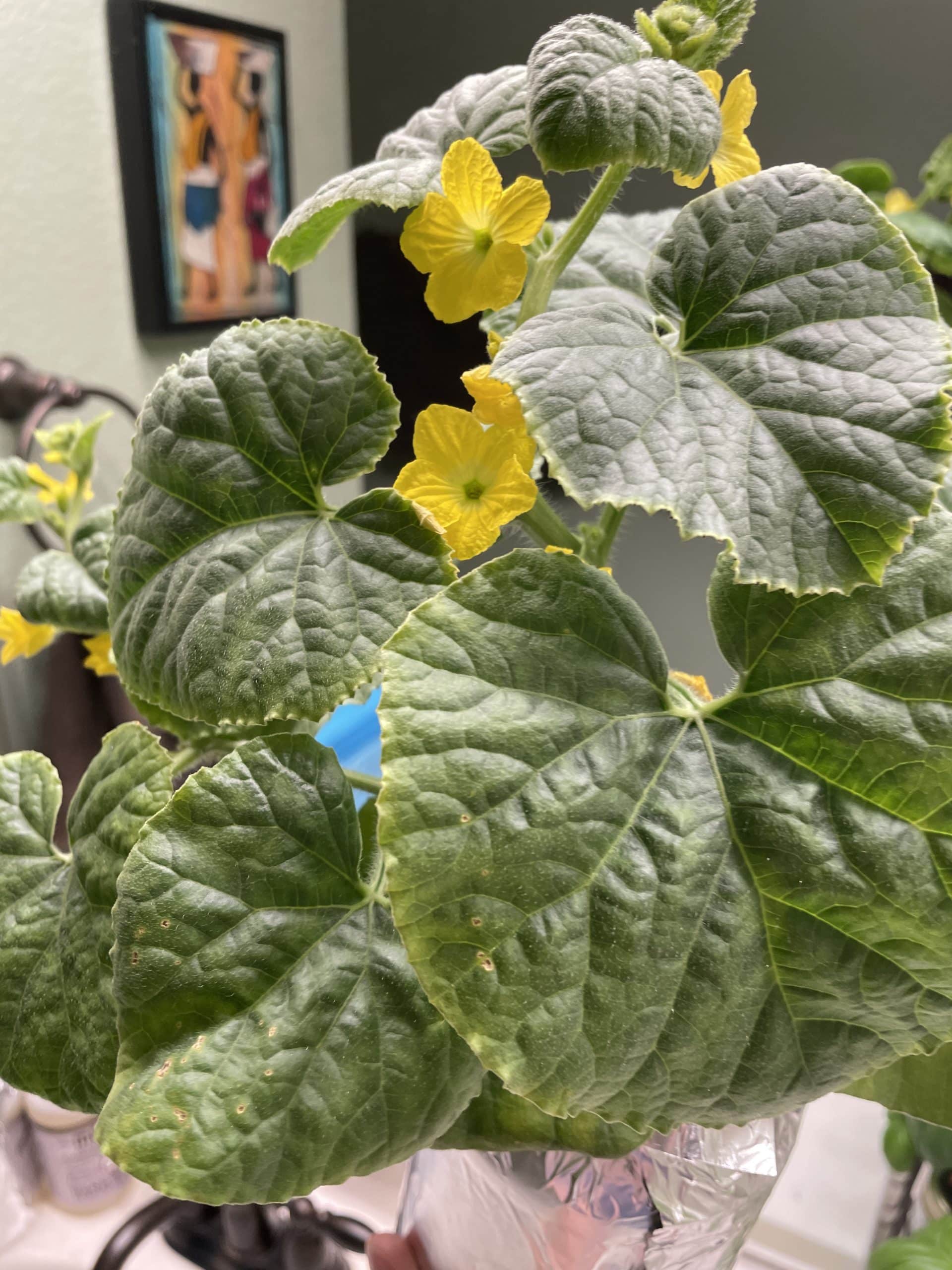
Kratky Hydroponic Cucumbers
While cucumbers may not seem like a good choice for growing hydropoincally indoors, there are many dwarf varieties that can help if you are in. alimited space. Outdoors, the sky is the limit. Cucumbers not only grow well with Kratky hydroponics, they thrive in it.
ADVERTISEMENT
As an Amazon Associate I earn from qualifying purchases.
KRATKY HYDROPONIC NUTRIENTS – FAQs
What is the Kratky method in hydroponics?
The Kratky method is a passive hydroponic system where plants grow in a nutrient-rich solution without the need for electricity, pumps, or aerators, allowing the plants to absorb water, oxygen, and nutrients as needed.
Can the Kratky method be used for any type of plant?
While the Kratky method is versatile, it’s most effective for leafy greens and herbs. It may not be suitable for larger fruiting plants or those requiring more support.
What are the best nutrients for the Kratky hydroponic system?
The best nutrients for the Kratky method are complete hydroponic fertilizers that include essential macro and micronutrients like nitrogen, phosphorus, potassium, calcium, magnesium, and trace elements.
How often should the nutrient solution be changed in the Kratky method?
In the Kratky method, the nutrient solution typically does not need changing; the system is designed for the solution to be used up as the plants grow.
Can the Kratky method be scaled for commercial production?
Yes, the Kratky method can be scaled for commercial production, but it requires careful planning in system design and nutrient management to ensure consistent plant growth and health.
How do you prevent algae growth in the Kratky method?
Prevent algae growth in the Kratky method by blocking light from reaching the nutrient solution, often by using opaque containers or covering exposed surfaces.
What is the ideal water level for a Kratky hydroponic system?
The ideal water level in a Kratky system allows plant roots to partially immerse in the nutrient solution while leaving some roots in the air for oxygen absorption.
How do you manage pests and diseases in the Kratky method?
Manage pests and diseases in the Kratky method through regular monitoring, maintaining cleanliness, using organic pest control methods, and selecting disease-resistant plant varieties.
How is aeration achieved in the Kratky method?
Aeration in the Kratky method is achieved passively as the water level drops, allowing more root surface to be exposed to air, thus eliminating the need for artificial aeration.
Can the Kratky method be automated?
The Kratky method is inherently a non-circulating, passive system, but aspects like nutrient monitoring and replenishment can be automated for larger-scale operations.
What is the lifespan of a Kratky hydroponic system?
The lifespan of a Kratky system depends on its construction materials and maintenance, but with proper care, it can last for several growing seasons.
Can the Kratky method be used indoors?
Yes, the Kratky method can be used indoors, provided that there is sufficient light, either natural or through grow lights, and stable environmental conditions.
How do you handle water evaporation in the Kratky method?
Handle water evaporation in the Kratky method by periodically checking and replenishing the water level to maintain the appropriate nutrient solution volume.
Can multiple plants be grown together in the Kratky system?
Multiple plants can be grown together in the Kratky system, but ensure they have similar nutrient requirements and enough space for root growth.
What types of containers are suitable for the Kratky method?
Suitable containers for the Kratky method are non-transparent, to prevent algae growth, and have enough depth and volume to accommodate the nutrient solution and plant roots.
How do you determine the right nutrient mix for the Kratky method?
Determine the right nutrient mix for the Kratky method by considering the specific nutritional needs of the plants being grown and following the guidelines provided by the nutrient manufacturer.
Is the Kratky method suitable for organic gardening?
The Kratky method is suitable for organic gardening as long as organic, soluble nutrients are used and organic growing principles are followed.
How does temperature affect the Kratky hydroponic system?
Temperature affects the Kratky system by influencing nutrient uptake, plant growth, and potential for pathogens; optimal temperature range varies by plant species.
Can the Kratky method be combined with other hydroponic systems?
While the Kratky method is distinct in its passive approach, it can be combined with other systems for experiments in hybrid hydroponic techniques, though this requires careful planning and execution.

















